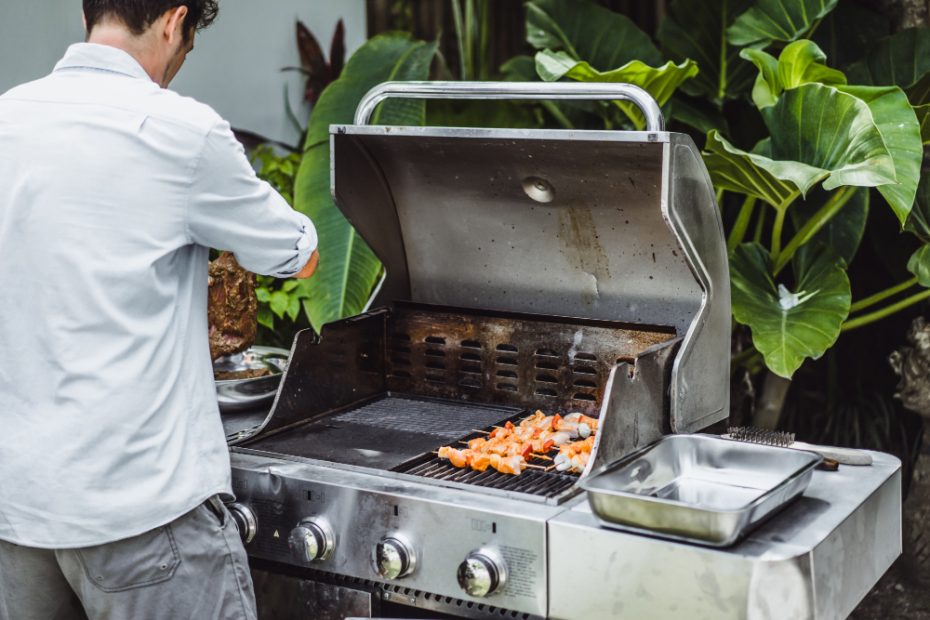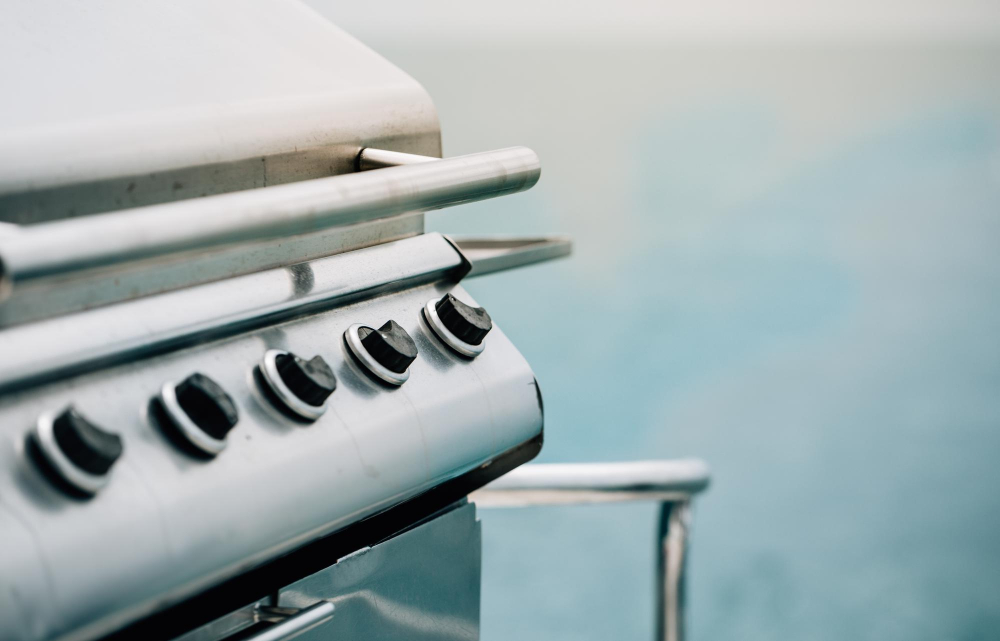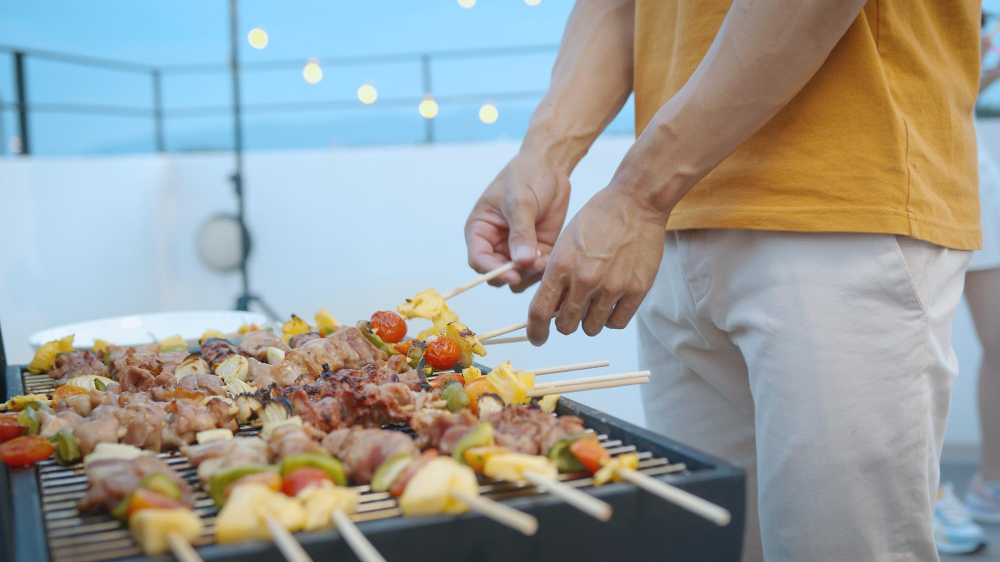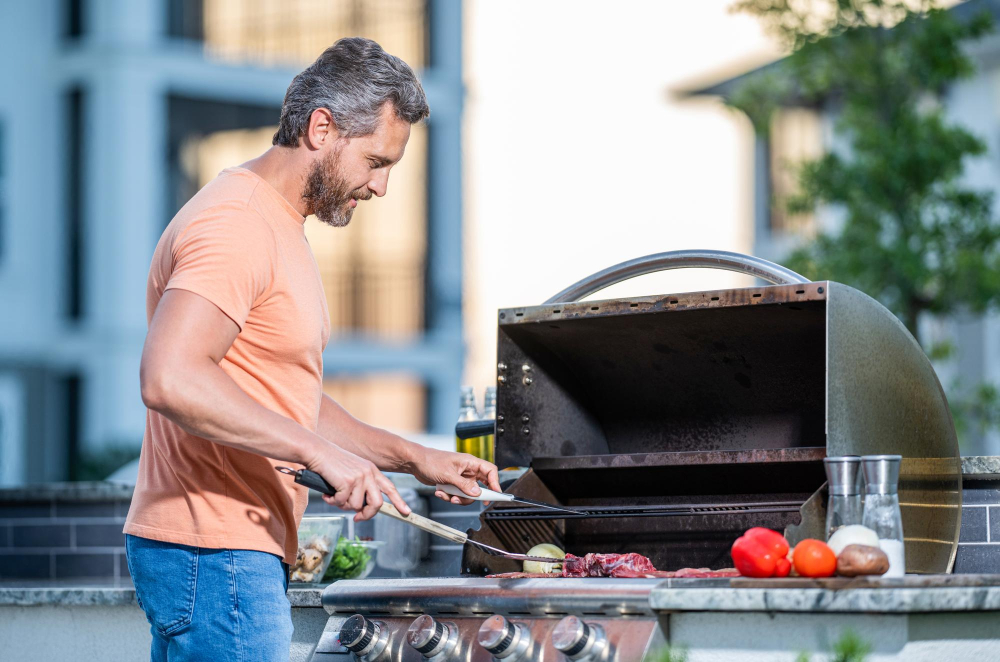Should you disconnect gas from BBQ when not in use?
When it comes to using a barbeque (BBQ), safety should always be a top priority. One common question that arises among BBQ owners is whether it is necessary to disconnect the gas supply when the grill is not in use. While there may not be a one-size-fits-all answer, it is generally recommended to disconnect the gas from your BBQ when it is not being used for an extended period of time.
Reasons to disconnect the gas
Firstly, disconnecting the gas can help prevent potential accidents or leaks. Even though modern gas grills are designed with safety features, such as automatic shut-off valves, it is still possible for a gas leak to occur. By disconnecting the gas, you eliminate the risk of any gas leaking into the surrounding area when the BBQ is not in use.
Secondly, disconnecting the gas can also help extend the lifespan of your BBQ. Exposure to the elements, such as rain or extreme temperatures, can cause corrosion or damage to the gas components of the grill over time. By disconnecting the gas and storing the BBQ in a covered area, you can help protect it from potential damage and ensure it remains in good working condition for longer.
Proper gas disconnection procedure
When disconnecting the gas from your BBQ, it is important to follow the proper procedure to ensure safety. Here are the steps:
- Turn off the gas supply: Locate the gas valve on the BBQ and turn it to the “off” position.
- Disconnect the gas hose: Once the gas supply is turned off, carefully remove the gas hose from the BBQ. Be cautious of any residual gas that may still be present in the hose.
- Store the gas hose safely: Store the gas hose in a secure place, away from any potential sources of damage or excessive heat.
Expert opinion
“Disconnecting the gas from your BBQ when it’s not in use is a simple step that can greatly enhance safety and protect the longevity of your grill. It’s always better to err on the side of caution when dealing with gas-powered appliances.” – John Smith, BBQ Safety Expert
In conclusion, disconnecting the gas from your BBQ when it is not in use is generally recommended to minimize the risk of accidents or leaks, as well as to protect the grill from potential damage. By following the proper disconnection procedure, you can ensure the safety of yourself, your loved ones, and your BBQ.
Should I clean my gas BBQ?
Keeping your gas BBQ clean is essential for maintaining its performance, prolonging its lifespan, and ensuring safe cooking. Regular cleaning not only helps to remove built-up grease, food residue, and other debris that can affect the taste of your food, but it also prevents flare-ups and reduces the risk of bacteria growth.
The Importance of Cleaning
A dirty gas BBQ can lead to uneven heat distribution, reducing cooking efficiency and potentially causing undercooked or overcooked food. It can also create a breeding ground for bacteria, which can lead to foodborne illnesses.
“Regular cleaning not only helps to remove built-up grease, food residue, and other debris that can affect the taste of your food, but it also prevents flare-ups and reduces the risk of bacteria growth.”
Cleaning your gas BBQ after each use prevents grease from accumulating and hardening, making it easier to maintain in the long run. It also allows you to inspect the burners, ignition system, and other components for any signs of damage or wear and tear that may require attention.
The Cleaning Process
Cleaning your gas BBQ can be broken down into several steps:
- Preparation: Ensure the BBQ is turned off and disconnected from the gas supply before cleaning.
- Scrubbing the Grates: Remove the cooking grates and scrub them with a wire brush to remove any stuck-on food particles. Rinse them thoroughly with water and dry before reattaching to the BBQ.
- Cleaning the Burners: Remove the burner assemblies and gently brush away any debris or rust. Check for any blockages in the burner holes and clean them using a wire or pipe cleaner. Make sure to follow the manufacturer’s instructions for your specific BBQ model.
- Wiping the Surfaces: Use a damp cloth or sponge to wipe down the exterior surfaces of the BBQ, including the lid, side tables, and control knobs. For stubborn stains or grease buildup, you can use a mild detergent diluted in water.
- Emptying the Drip Tray: Remove the drip tray or grease pan and dispose of any accumulated grease and debris. Clean the tray with warm soapy water and ensure it is thoroughly dry before putting it back.
Additional Tips
Here are some additional tips to keep in mind when cleaning your gas BBQ:
- Use a grill cover to protect your BBQ when it’s not in use, preventing dust, dirt, and moisture from accumulating.
- Regularly inspect and clean the gas hoses and connections to ensure there are no leaks or blockages.
- Consider using a degreaser or BBQ cleaner for a more thorough clean, following the product instructions carefully.
- Pay attention to any specific cleaning recommendations provided by the manufacturer in the user manual.
- If you’re unsure about any part of the cleaning process, consult a professional or contact the manufacturer for guidance.
By regularly cleaning and maintaining your gas BBQ, you can enjoy delicious, safe, and hassle-free outdoor cooking experiences for years to come.
How do you maintain a gas BBQ?
Cleaning the Grill
Regular cleaning is essential for maintaining a gas BBQ and ensuring it functions efficiently. Start by preheating the grill on high for 10-15 minutes to loosen any stuck-on food residue. Then, turn off the gas supply and allow the grill to cool slightly. Use a wire brush to scrub the grates, removing any remaining debris. For stubborn grease, mix warm water with mild dish soap and scrub gently. Rinse thoroughly and dry with a cloth or paper towel.
Inspecting and Replacing Parts
Regularly inspect the burners, igniter, and gas hoses for any signs of damage or wear. Replace any worn out or damaged parts immediately. Clean the burner ports using a small wire brush to remove any blockages, ensuring a steady flame. It’s also important to check the gas regulator and hose for leaks. Apply a solution of soapy water to the connections and look for bubbles. If bubbles appear, tighten the connections or replace the faulty parts.
Protecting the BBQ
To protect your gas BBQ from the elements, invest in a cover designed specifically for your model. Covers help prevent rust, dirt, and other debris from accumulating. Make sure the grill is completely cooled before covering it. Additionally, consider storing your BBQ indoors during the winter months to extend its lifespan.
Seasoning the Grill
After cleaning the grill, it’s important to season it to prevent rust and improve the non-stick surface. Simply coat the grates with a thin layer of cooking oil, using a brush or spray. Preheat the grill on medium heat for around 15 minutes or until the oil begins to smoke. Allow the grates to cool completely before using them.
Pro Tip: When cleaning your gas BBQ, avoid using abrasive cleaners or metal brushes as they can damage the grill’s surface.
Maintaining a gas BBQ is essential for both safety and optimal performance. By regularly cleaning the grill, inspecting and replacing parts as needed, protecting it from the elements, and properly seasoning the grates, you can ensure that your gas BBQ stays in top shape and provides delicious meals for years to come.
How often should I clean my gas grill burners?
Regularly cleaning your gas grill burners is essential for maintaining their functionality and ensuring a safe grilling experience. The frequency of cleaning will depend on factors such as how frequently you use your grill, the type of food you cook, and the general condition of your burners. In the UK, where summers are relatively shorter, it’s common to fire up the grill less frequently. However, it’s still important to keep the burners clean.
Factors to Consider
When deciding how often to clean your gas grill burners, consider the following:
- The frequency of use: If you use your grill extensively, it may be necessary to clean the burners more often.
- The type of food: Fatty foods can result in more grease accumulation, necessitating more frequent cleaning.
- Visual inspection: If you notice any significant buildup or irregularities in burner performance, it’s advisable to clean them.
Cleaning Frequency Recommendations
While the specific interval for cleaning gas grill burners may vary, it is generally recommended to clean them at least once every grilling season. For most grill owners in the UK, this means cleaning the burners at the beginning and end of the summer. Additionally, conducting a mid-season inspection and cleaning if necessary is also a good practice.
Regular maintenance will not only improve the longevity of your gas grill burners but also enhance the taste and quality of your grilled food. Neglecting proper cleaning can result in uneven heating, flare-ups, and potential safety hazards.
Remember, a clean gas grill burner is a happy gas grill burner!
To clean your gas grill burners effectively, follow these steps:
- Disconnect the propane tank and remove any grates or heat shields covering the burners.
- Brush away loose debris using a grill brush or scraper.
- Soak the burners in warm, soapy water for around 30 minutes.
- Gently scrub the burners with a soft-bristle brush to remove grease and residue.
- Rinse the burners thoroughly with clean water and allow them to dry completely before reassembling your grill.
By following these cleaning practices and recommendations, you’ll ensure that your gas grill burners remain in proper working order and continue to deliver delicious grilled meals for years to come.
Do you clean Weber Q after every use?
Keeping your Weber Q grill clean is not only essential for maintaining its performance but also for ensuring food safety. While cleaning your grill after each use may seem like a tedious task, it is important to prevent grease buildup, maintain the longevity of your grill, and enhance the flavor of your food.
Why is cleaning after every use important?
Cleaning your Weber Q grill after every use helps remove residual food particles, grease, and carbon deposits. These residues can accumulate over time, leading to uneven heat distribution, reduced cooking efficiency, and potential flare-ups during future cooking sessions. Moreover, thorough cleaning prevents the growth of bacteria and mold, ensuring that your food remains safe to consume.
How to clean your Weber Q grill?
1. Preheat and brush: Before cleaning, preheat your grill on high for 10-15 minutes to burn off excess grease and food debris. Use a grill brush to scrape off any stubborn residue from the grates.
2. Clean the grates: Remove the grates and soak them in warm soapy water. Scrub them with a grill brush or sponge to remove any remaining residue. Rinse thoroughly and dry before placing them back on the grill.
3. Clean the burner tubes: Remove the burner tubes and clean them using a soft brush or cloth. Ensure all the burner holes are clear from debris or grease buildup.
4. Wipe the exterior: Use a damp cloth and mild detergent to wipe the exterior surfaces of your grill. Avoid using abrasive cleaners that could damage the finish.
5. Empty and clean the drip tray: Remove the drip tray and dispose of any collected grease. Wash it with warm soapy water, rinse, and dry before placing it back in the grill.
“Regular cleaning not only extends the life of your grill but also enhances the flavor of your food.” – Weber Grills
To keep your Weber Q grill in top shape, it is recommended to deep clean it at least once a year. This involves dismantling various parts and using specific cleaning solutions. Refer to the manufacturer’s instructions or consult a professional to ensure you clean your grill effectively and safely.
Remember: Regularly cleaning your Weber Q grill will not only make it look good but also improve its performance, extend its lifespan, and contribute to healthier and tastier meals.
How to Clean Rusty Grill Grates
Grilling is a popular pastime in the UK, but over time, grill grates can become rusty and dirty, affecting the taste and quality of your food. Fortunately, cleaning rusty grill grates is a relatively simple process that can be done using household items. Follow these steps to bring your grill grates back to their former glory:
Step 1: Remove the Rust
To start, remove any loose rust from the grill grates using a wire brush. This will help to create a clean surface to work with. Make sure to wear protective gloves during this process to avoid injury.
Step 2: Apply a Cleaning Solution
Next, create a cleaning solution by mixing equal parts water and vinegar in a bucket or spray bottle. The acidic nature of vinegar helps to dissolve rust. Spray or soak the grill grates thoroughly with the solution and let it sit for about 10-15 minutes.
Step 3: Scrub the Grates
After the cleaning solution has had time to work its magic, scrub the grill grates using a wire brush or sponge. This will help to loosen any remaining rust or debris. For stubborn areas, you can sprinkle some baking soda on the grates and scrub it gently.
Step 4: Rinse and Dry
Once you have scrubbed the grates thoroughly, rinse them off with clean water to remove any residue. Pat them dry using a cloth or paper towels. It’s important to ensure the grates are completely dry to prevent further rusting.
Tips to Prevent Rust
To keep your grill grates in good condition and prevent future rusting, here are some helpful tips:
- Season your grill grates with a thin coat of vegetable oil before and after use.
- Clean the grates regularly by brushing off any food debris and applying a light coating of oil to prevent moisture from building up.
- Store your grill in a dry place or use a grill cover when not in use to protect it from the elements.
Remember, regular maintenance and cleaning are key to keeping your grill grates in top condition and ensuring delicious barbecue every time!



